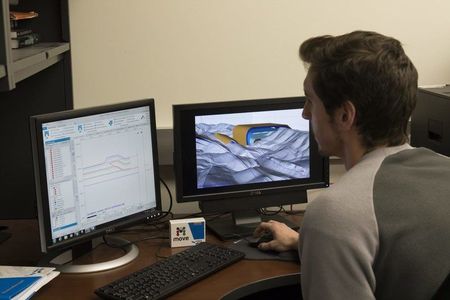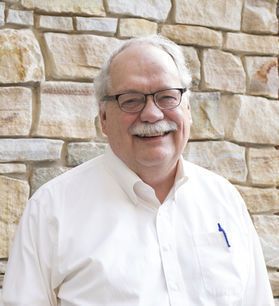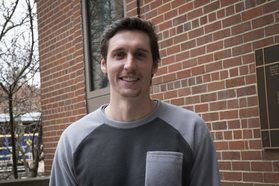
Bertrand Gaschot, a master’s student in the department of geology and geography, uses MOVE to create 3D geological maps and build models of West Virginia’s complex geology.
MORGANTOWN, W.Va. - For more than a decade,
geology
students at
West Virginia University
have used the same advanced software used by oil and gas companies worldwide,
expanding their marketability for industry jobs.
Petroleum Experts Limited has furthered this access with an in-kind gift of its
MOVE software, valued at $2.2 million.

Tim Carr
“Geologists have long struggled to work with ‘big data’ comprised of terabytes
of diverse observations within a 3D framework that evolves through millions of
years adding a fourth dimension,” said
Tim B. Carr
, chair of the
Department of Geology and Geography
. “Software such as MOVE provides our students the ability to better analyze and
understand complex processes that shape earth.”
The MOVE suite is the company’s most complete structural modeling and analysis
toolkit, featuring a platform for integrating and interpreting geological data,
cross-section construction, 3D model building, kinematic restoration and validation,
geomechanical modeling, fracture modeling, fault response modeling and fault and
stress analysis. It provides a digital environment for structural modeling to reduce
risk and uncertainty in geological models.
“MOVE allows you to study and model rock formations, mostly folding and faulting
of rocks. There are geometrical rules as to how those folds can form. The software
allows you to put in a fold, undo it and see if you end up with a geometry that
is possible,” said
Jaime Toro, professor of geology. “Then, you can compare what the computer
produces to what happens in reality.”

Bertrand Gaschot
Bertrand Gaschot, a master’s student in the Department of Geology and Geography,
is using MOVE for his thesis research. He extracts structural information from
a high-resolution topographic dataset collected using LIDAR and uses MOVE to
create 3D geological maps and build models of West Virginia’s complex geology.
“Student access to MOVE is an excellent learning opportunity for students who want
to increase their understanding of structural geology,” Gaschot said. “Geological
structures are inherently 3D; however, structural geology is often taught with
traditional 2D methods such as cross-sections and maps. This can make it difficult
for some students to visualize and fully understand certain concepts. MOVE’s 3D
capabilities can help solve that problem. It can also integrate a wide range of
data types students may end up working with in the future, including well, seismic,
remote sensing and field data.”
In addition to being used for faculty and graduate student research, the software
is used in several graduate courses, including GEOL 645: Basin Analysis and GEOL
575: Imperial Barrel Competition.
“It’s important for students to have access to this kind of software because technology
is critical, and it changes all the time,” Toro said. “It’s very important for
students to be skilled in using these tools so they are ready to enter the workforce.”
Students enrolled in the Imperial Barrel Competition course train to test their
skills against graduate student teams from all over the world. They receive a real
multi-gigabyte set of geological data from the oil industry, analyze it in six
weeks to understand the geologic history of a basin and present proposals for locating
oil and drilling options.
“Learning to use software like MOVE makes students more attractive to employers
and allows them to do their jobs better once they are in the workforce. In fact,
we often hear from employers about how happy they are with the training our alumni
received. Our students are ready to go,” Toro said. “Having technology like this
makes us relevant as a program. It’s one of the reasons why students want to study
at WVU.”
The gift was made through the
WVU Foundation, the nonprofit corporation that generates and administers private
support for the University.
-WVU-
ks/01/15/19